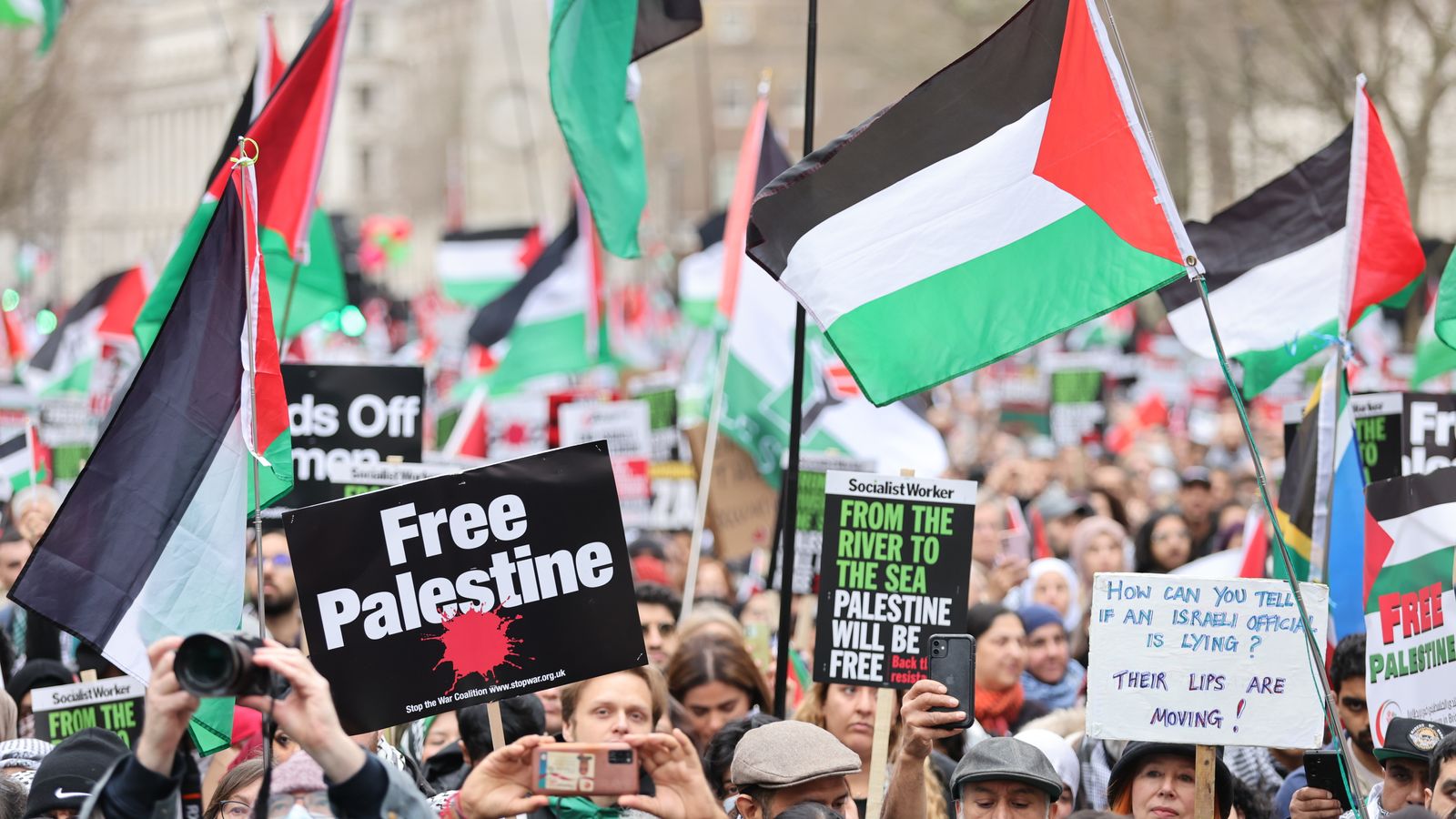Some might have thought that support for these marches would have waned by now.
They’ve been going for nearly four months and this is the eighth one.
But on today’s evidence, those perceptions would be very wide of the mark.
Follow live: Iraq warns of ‘disastrous’ consequences after US strikes
For 25 minutes, we watched as a continuous crowd passed us on Regent Street.
We started our clock when the front of the line set off and they were going at quite a pace.
But even after that much time, we still couldn’t see the finish – just a seemingly endless sea of Palestinian flags fluttering overhead.
Eurovision Song Contest: Calls to ban Israel grow – piling pressure on European broadcasters
Best hope for wider Middle East de-escalation after US strikes remains ceasefire in Gaza
Sean Bell | West must adapt as drones become weapon of choice for military ‘underdogs’ and terror groups
This time, the demonstrators began outside BBC HQ before ending on Whitehall, where some were shouting “shame on you” outside the gates of Downing Street.
Among them was Kevin, from London, who told me he’s been to every single one of these marches.
“I’m here to uphold international law,” he said.
“Somebody has to stand up and say we’ve had enough. We need to stop this genocide now.”
But are the marches having any impact? There’s no sign of any policy change. Protesters’ demands for a ceasefire still aren’t being echoed.
“I think behind the scenes the government is already softening its stance. It has to because there’s elections coming up,” Kevin said.
And the anger here wasn’t only aimed at Rishi Sunak and his government.
I meet Lesley and Gill, who have travelled from Devon to attend. On Gill’s forehead is a sticker with the words “Just Stop Starmer“.
“He’s the opposition but he just agrees with everything the government says and does,” says Gill.
In contrast with the constant flux of the situation in the Middle East – the US airstrikes on Iranian-linked targets the latest example – protesters’ demands have remained the same, ever since the first of these marches in October.
Analysis: US strikes may have unintended and far-reaching consequences
Ending the war in Gaza, in their view, ends the wider regional conflict.
No surprise then how America’s latest salvo is going down. “Unnecessary”, “extraordinary” and “appalling” were just some of the words used to describe it.
Please use Chrome browser for a more accessible video player
According to Gill, the response was “disproportionate” because there’s a “madman” in the White House.
“What is he doing?” she asks.
“There are Americans being killed in Gaza and they’ve done absolutely nothing about that so they’re a bit selective about their retaliation.”
Read more: What we know about the sites targeted in US strikes
Speaking of retaliation, there are plenty here who believe the issue will come back to bite when the US and UK go to the polls.
Five-time marcher Joseph is certain the war in Israel will be an “electoral issue” here in Britain.
“It’s deeply embarrassing for the government and the opposition because their positions are pretty much untenable,” he says.
And how much longer will the marches last? “As long as it takes.”






